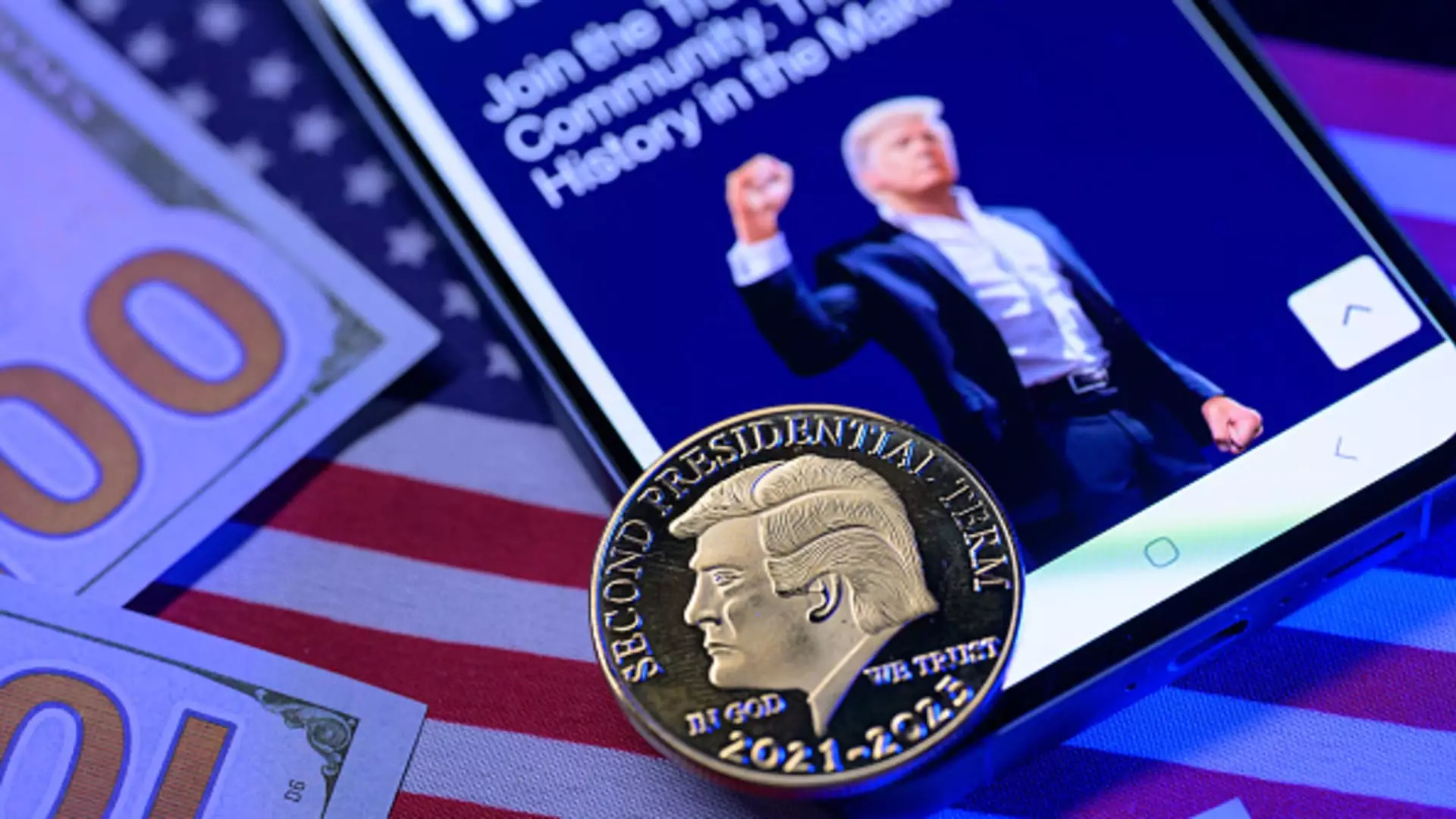In a puzzling intersection of politics and cryptocurrency, President Donald Trump’s forthcoming dinner for the elite holders of the $TRUMP meme coin epitomizes the complexities of anonymity and financial aspiration in the digital age. Scheduled for May 22 at his opulent golf club in Virginia, this gathering stands as a compelling symbol of a broader conversation surrounding the motivations of those investing in the burgeoning crypto sphere. The anonymity of wallets participating in this blockchain-driven economy invites scrutiny not only about the identities of the wealthiest holders but also about the ramifications of such obfuscation when intertwined with governance and influence.
Such gatherings often draw attention because of the ostensible influence wielded by those present; however, the privacy of crypto transactions raises uncomfortable questions. Who are these top $TRUMP holders, and what are their intentions? As wallets operate under pseudonyms, the true identities of these investors—many of whom are likely based outside the United States, as indicated by blockchain analytics—remain murky. Cryptocurrency’s appeal often stems from the promise of financial independence, but this financial instrument also facilitates a murky corridor for foreign interests to penetrate U.S. politics.
The International Pool of Investors
Documents from Inca Digital have unearthed an intriguing trend in the $TRUMP token landscape. Notably, 19 of the top 25 wallets likely belong to individuals from abroad, with extensive engagement on platforms such as Binance, which does not cater to American customers. This highlights a shift in investment power, suggesting that non-U.S. transactions are dominating a landscape that was once perceived as predominantly domestic. The apparent exclusion of U.S. citizens from the money pool raises a poignant question about the Trump family’s connections and whether foreign capital might penetrate American governance more easily via crypto.
Consider Justin Sun, a significant figure in the cryptocurrency progression and a well-known investor who purchased a staggering $75 million in Trump-related tokens. Born in China and the founder of the Tron blockchain, Sun’s involvement paves the way for assertions that foreign investors might utilize these investments as a backdoor into American political circles. Such developments invite scrutiny from regulatory bodies and politicians alike, particularly as they explore potential threats to U.S. sovereign finance and policymaking.
Meme Tokens and the Whims of the Market
The $TRUMP token is a dramatic embodiment of the highs and lows characteristic of the cryptocurrency markets. With 560,376 wallets reportedly realizing a staggering $5.2 billion in gains while an even greater number—592,962 wallets—sustained losses amounting to $3.9 billion, the trading dynamic bears all the hallmarks of a speculative bubble. The promise of rapid wealth lures many into investing, yet the stark reality reveals a harsh imbalance that is particularly brutal for less-informed investors. This quantifies the risks inherent to meme stocks, where momentary spikes are often followed by harrowing declines, leaving many in financial ruins.
Despite the chaos, the allure of potential wealth continues to captivate many. The appointment of AstroTurfing tactics to globalize this token’s appeal represents a troubling embrace of volatility over stability. Notably, while the $TRUMP token surged to an impressive $15 billion market cap upon its introduction, it subsequently witnessed a precipitous drop in value, offering a cautionary tale about the perils of unregulated financial speculation intertwined with political endorsement.
The Future of Regulation and Political Influence
As conversations surrounding regulation reemerge, key players such as Senator Richard Blumenthal express concern over the looming dangers of unchecked crypto transactions. The potential of corporate and foreign money to distort U.S. policy decisions through investments tied to figures like the Trump family raises alarms about the future landscape of American governance. The delicate balance between encouraging innovation and preventing exploitation must be navigated expertly by lawmakers if a crisis is to be averted.
In this digital age, Trump has positioned his meme coin as a central piece of his broader financial strategy, capturing the imaginations and wallets of investors from around the globe. The intersection of politics and cryptocurrency continues to evolve, and so too must the scrutiny surrounding these dynamics. As the popularity of meme coins surges, the moral implications of their rapid ascent into political discourse necessitate a thorough examination, as they blur the lines between advocacy and the manipulation of financial systems defined by anonymity and volatility. This unpredictable realm is fraught with risks, and as the dinner date approaches, stakeholders must confront the complex reality that surrounds this newest manifestation of American entrepreneurial spirit.

